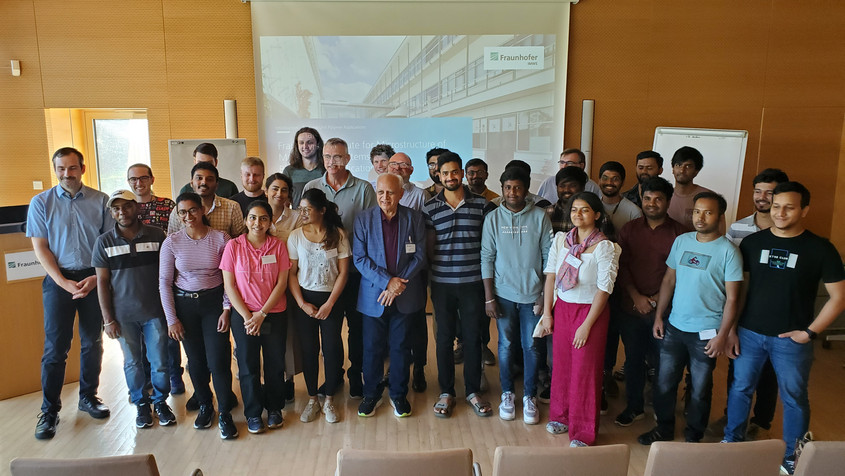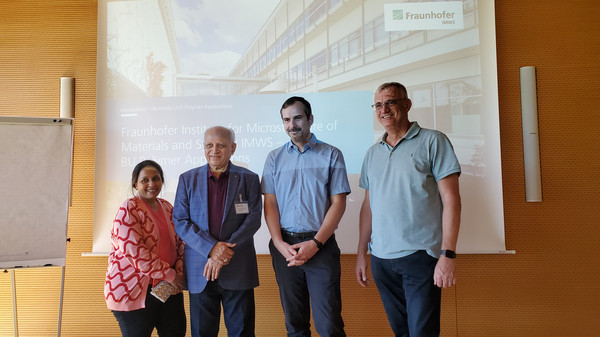Merseburg, October 16, 2023. Around two dozen students from Martin Luther University and Merseburg University of Applied Sciences eagerly followed Arvind Mehta's remarks at the Fraunhofer Institute for Materials and Systems (IMWS) on Halle's Weinberg campus at the beginning of September. In his presentation, the Chairman of the 22,000-member Indian Plastics Industry Association AIPMA described the breathtaking growth of his industry over the past 30 years. The twenty-fold increase in demand for plastics during this time has made what is now the world's most populous country the world's largest producer in many areas, such as thermal protection films, synthetic resins and rotationally molded tanks. But Mehta also didn't hide the downside: "Production all too often entails social and ecological costs that are unacceptable," analyzed the founder and owner of the 250-employee company Welset in Mumbai: "These include long working hours, poor working conditions and... environmental destruction.”
Effects that the entrepreneur has personally declared war on. A few years ago, he founded the Arvind Mehta Technology and Entrepreneurship Center in Mumbai under the umbrella of AIPMA, where specialists and managers for the plastics industry are trained. “Modern qualifications are the decisive prerequisite for even more globally marketable products, resource-saving production and higher revenues, which in turn enable better pay and shorter working hours,” he summarized his experiences from over five decades as an entrepreneur. “We also need a lot more environmentally friendly products.”
That was also why Arvind Mehta came to the Central German Chemical Triangle with his daughter Keshawi that day. “Today we are signing a license agreement with Merseburger Exipnos GmbH,” announced Keshawi Mehta on the sidelines of the lecture event. The company she runs, Keshawin Bio-polymers, based in Mumbai, will “manufacture biodegradable plastics from the BioCelain brand developed by Exipnos under license from the beginning of 2024 and will sell them in particular on the Indian market,” the entrepreneur added.
This makes Keshawin Bio-polymers one of the pioneers on the subcontinent, as the entrepreneur made clear in her subsequent lecture at the Fraunhofer Institute. “While the global market for bioplastics was still young and reached a volume of $7.5 billion last year, less than a twentieth of that was sold in India.” In the next four years, bioplastic sales are expected to triple in the world's most populous country. “We want to contribute to this growth with BioCelain,” said Keshawi Mehta resolutely.
The contract between the Indian and the German company is a further result of the cooperation concluded in 2020 between the All India Plastics Manufacturers' Association (AIPMA) and the German supporting association POLYKUM. Regardless of the restrictions during the corona pandemic, the collaboration has since been brought to life. Arvind Mehta's company Welset became a full member of POLYKUM. In addition, there was growing scientific exchange and mutual presentations by both partners at important conferences in the other country as well as joint trade fair appearances. In 2021, India became partner country at the “BIOPOLYMER – Processing & Molding” congress organized by POLYKUM, which has since met with a continued, broad response on the subcontinent.


